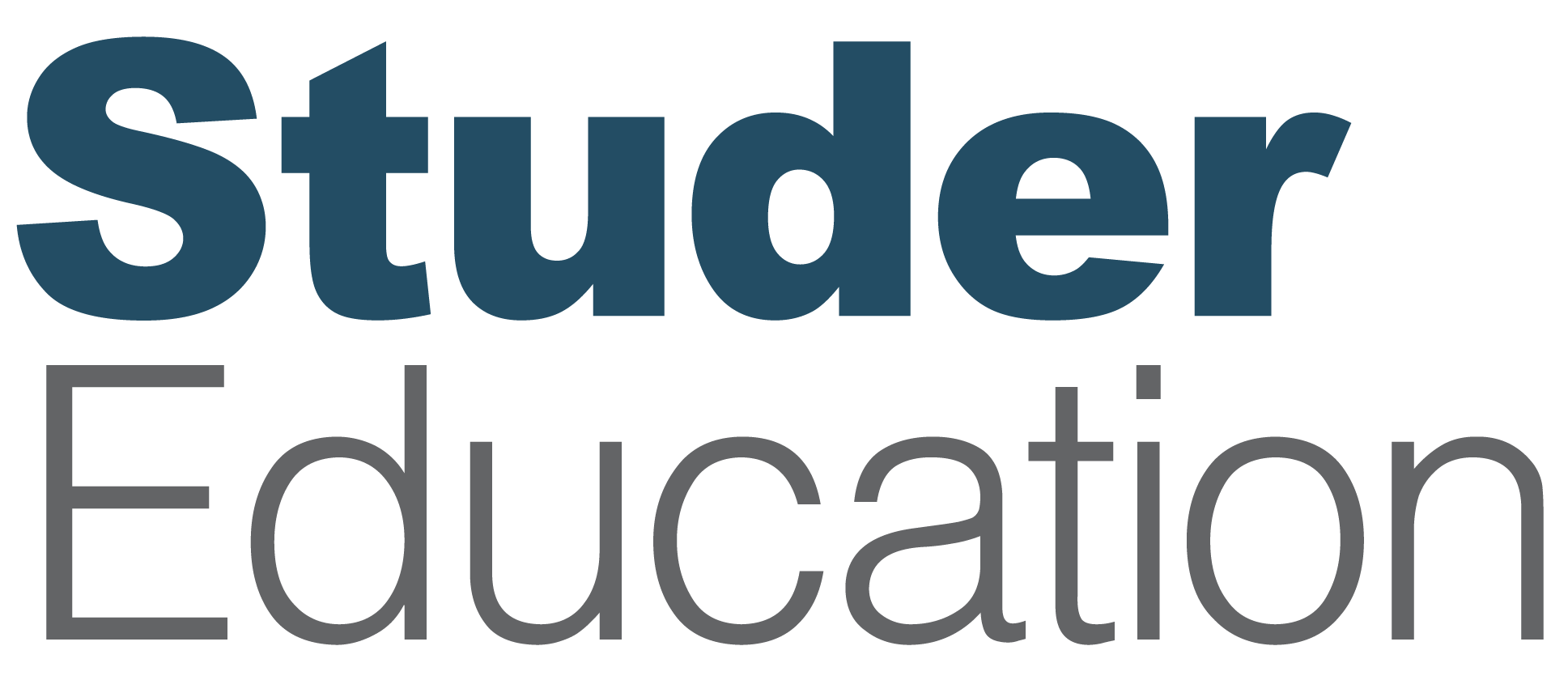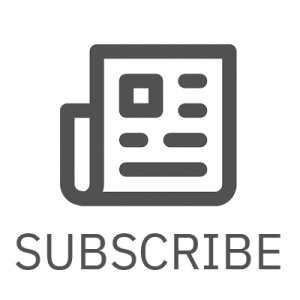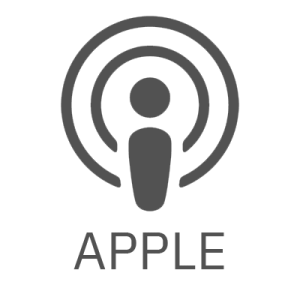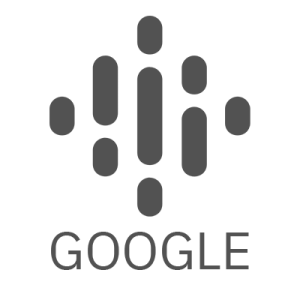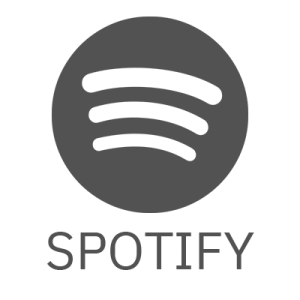
Purposefully pausing and reflecting paves the way for improvements and adjustments to be made in the upcoming school year. Join Dr. Janet Pilcher as she interviews Dr. Kathy Oropallo, a Leader Coach at Studer Education, to hear how she coaches her partners to evaluate the effectiveness of past strategies, celebrate wins, and address challenges. Kathy explains how tools like leader rounding and plus delta capture real-time data and shares insights on how she coaches leaders to move from reflection to action.
This episode addresses questions such as:
- What are the most important steps of the reflection process?
- How can leaders evaluate the effectiveness of past strategies?
- How can the insights gained during the reflection process be translated into actionable steps to take?
Latest Episodes
Kathy Oropallo: That’s the power in what we’re talking about today. The ability to pause and say, “let’s reset.”
[Intro music plays in background]
Introduction
Janet Pilcher: Hello, everyone. Welcome to today’s Accelerate Your Performance podcast. I’m your host, Janet Pilcher. Thank you for tuning in this week as we focus on what it takes as leaders achieve important outcomes on an organizational scorecard and then reflect on what we achieved as we close the year. We engage in this work because we want our high performing employees to stay with us, be engaged and be connected.
This is episode two of our series on why pausing to reflect on the last school year and planning for the upcoming school year are essential for our success. Today, we’ll hear a little more about that in our role play where I’ll play the coach and our guest will play the role of a superintendent.
Speaking of our guest, I’ve invited Dr. Kathy Oropallo back onto our show to help us talk about pausing, reflecting, and planning. Kathy’s been here before to talk about the work of continuous improvement. And today she joins us to share her experiences in coaching partners to look holistically at the work that they’ve achieved and how they plan for the future.
Kathy, a leader coach at Studer Education since 2018, has a unique background in public, private, and nonprofit educational sectors. She’s done everything from pioneering a national youth educational outreach program to partnering with the National Writing Project to develop over 200 teacher leaders in student literacy. At Studer Education, Kathy coaches leaders specifically in leading school improvement.
In the past two years, she’s published two chapters on continuous improvement with the Estacada School District in Estacada, Oregon. She’s also published a peer reviewed article in preventing school failure that describes the work she did with Dr. Angela Bush in Birmingham, Alabama. I actually interviewed Angela a couple of weeks ago and we’ll link to that episode in the show notes.
So let’s dive right in with Kathy.
Interview
Janet Pilcher: It’s with great pleasure that I welcome back to our show, Kathy Oropallo. So Kathy, welcome.
Kathy Oropallo: Thank you so much. It’s my pleasure to be here and a privilege to be here. Thank you.
Janet Pilcher: Absolutely. And, you know, Kathy, we, uh, we’re getting close to the end of the school year. It’s hard to believe sometimes, but we’re getting there. And I want to focus today on the topic of pause and reflect. So let’s talk a little bit about that we do pause and reflect during the school year, and then we determine where we pause, reflect, and then act from that. And then at the end of the year, we see where we landed and we absolutely [laughs] pause and reflect on where our results are. So we’re going to ask you some questions related to how we pause and reflect and think through the results that we have and how we continue to act on those to get better.
So when you’re working with districts, you’re monitoring progress and talking about improvement cycles and you hear those words and our podcast episodes and with our partners. So once you get to the end of the year and reflect and from a systems perspective, talk to our listeners about what does that look like when leaders are reflecting? How can they evaluate the effectiveness of their past strategies? Just at the end of the year, what does that reflection look like as they think back over the work they’ve done throughout the year?
Kathy Oropallo: Yeah, I think that’s such a great question because when you’re thinking about pausing at the end of the year, it’s a great time. They’re so close to the work that they don’t even realize the milestones they’ve achieved. And they also don’t have a good idea of the journey because they’ve been just going day to day and month to month on the work.
So one of the things that I think is really important is to start off with the wins, small and big wins, and really looking at it from a timeline perspective. I try to go month by month and then show them sort of a journey map of “here are some of the milestones you hit, but what are some wins you recognize along the way?”
I often get the comment, “you know, I forgot we achieved that. I forgot we did that.” And so they’re so focused sometimes on the challenges that they don’t get a chance to really take in those wins. So I think that’s a really important piece is just being able to see the milestones that they’ve made. And there’s always progress and focusing on progress is so motivational.
Then I also think that as they do that, thinking about the difference of implementation and hardwiring. So, we can implement strategies and tactics and use tools, but part of our job is to change the system so that the weight of the challenges land on the system and not on the people. And so as they’re going through that process, I think one of the things we want to talk about is where do you feel like you’re beginning to hardwire things across the system? And oftentimes what comes up quite frequently is rounding things like rounding, leader rounding and feedback loops around that, the plus Delta. So, you know, that’s, I think, a really important conversation.
So sometimes I’ll go back to the annual plan or I’ll go to their goals and we’ll look at, it could be a scorecard, it could be their annual plan, and we’ll highlight where we think they’ve hardwired some of the things they’re working towards. And I think that’s a great conversation. It also helps us look at our framework in terms of our evolution across EBL and evidence-based leadership and where we land there. Because a lot of times they’re doing these things, but until it’s a practice that’s a routine practice and a consistent practice, we really haven’t impacted the system as well as we want to.
Janet Pilcher: Yeah, so good, Kathy. And a topic I’ve found myself bringing up with leaders and teams is just looking at that difference between compliance and performance. So are we just doing the action? Are we doing the action because we’re trying to achieve a particular outcome and we’re reflecting on how well we’re doing that to achieve that outcome versus just I did it?
you know, and I think that’s the, I love what you talk about with we’re implementing it, but are we moving implementation to hardwire? Cause if we hardwire, then it becomes that habit of practice about how we do things, not because we’re just showing up and doing a checkoff, but it’s embedded within our being, so to speak.
Kathy Oropallo: Absolutely. And I do think in terms of your partner maturity, like, you know, how long you’ve been doing continuous improvement and evidence-based leadership, it is a natural developmental place to be very technical and mechanical at first with the work. But the more you begin to pause along the way in those short cycles of improvement and talk about how is it impacting the system. And then when you have these moments where you can really look at milestones across a year, it really can become a great conversation for moving people into more of a deeper understanding of their practice and then connecting it to, yeah, these things go together. They begin to see kind of the relationships between rounding and surveys and scorecard and the bullseye. And so some of those things begin to come together as we pause to reflect.
Janet Pilcher: Yeah, so good. Let’s go ahead and just think about the bigger picture. We start with a strategic plan. We build those annualized plans. We work through the short cycle improvement processes and look at our scorecard results throughout the year. And we also historically look at our overall scorecard results. So we look at them at the end of the year, but we’re looking at our results and progress that we make throughout the year. So what are the pauses that you encourage your partners to take along the way as they’re reflecting on what they’re doing and how well they’re doing and how that connects to the actions that they take?
Kathy Oropallo: That’s a great question. Early in the process, I think we focus around 30, 60, 90, you know, that monthly huddles around, you know, what are our wins? What’s the status so we can practice using evidence and data? Then what are the challenges that we have? And then, you know, what are our next best moves? So we kind of follow that protocol.
And what happens in those conversations is one, we create, because we come together both as maybe a senior leadership team, but then we also do this. If you cascade to the schools with principals and then with leadership teams, people begin to have shared ownership around the goals and the challenges and the successes and the wins. And it builds a level, I think it builds a level of that collective responsibility and shared ownership. And what Hattie refers to as that collective efficacy around the work.
So by collecting those wins and starting with those wins, they’re able to see some of those small moves that lead to some of those bigger moves that we talk about at the end of the year called milestones. But I really think that conversation is really important. And I know there’s different variations of huddles, but this type of huddle where they’re reporting out can really set the stage for deeper problem solving. And also connecting the work across levels and perspectives. And then it helps them to stay motivated because they see progress.
Janet Pilcher: Yeah. You know, Kathy, what you’re talking about, I really, I really think is important because there’s data in front of us, but data in and of itself is not very useful unless we talk about what it means and unless we act on it and figure out what’s behind that, the data in those conversations and that facilitation that you do so well and our other coaches do with our partners, it’s just helping facilitate those conversations so that we can understand what’s working, what’s not working, and where we have to make those adaptations along the way.
So we’ve gone at the beginning of the year, we have a strategic direction, we build our annual plan. We’re now at the end of the year, we’re looking at our results, we paused and reflected throughout the year and with processes that you’ve been talking about, and now we’re at the end of the year and we’re looking at how we set the stage for next year, because it never ends, right? It’s an ending point of time, but basically we’re moving into next year.
So how do you make sure, and as you work with your partners to make sure that the insights gained from the reflection continue to move on and you’re capturing what you need for future planning?
Kathy Oropallo: Yeah, I think personally, I use a simple tool called keep doing, stop doing, start doing. And it really helps them reflect on, because I think over the years, and when you’re working in improvement, people forget what they did to get them where they are. And so I think having the keep doing allows them to reflect and remind them, “oh, these are the things we’re trying to hardwire. We can’t abandon these for something new. We need to keep doing these things because they’re working for us.”
And then the stop doing, we learn quickly, you know, sometimes there may be too many measures or the data that we present in those meetings too complicated and we need to simplify to get down to the heart of what we’re trying to accomplish. So what are the things we want to stop doing?
And then what are some of the things that we want to start doing that we learn? Like oftentimes it’s about priorities, right? So you build a scorecard in there. They want to put everything they do on the scorecard, right? And so, you know, coaching through that, sometimes we sort of come to compromise. And then as they implement and go through those 30 day cycles, they begin to see, “oh, you know, we really should have simplified this and focus more on those strategic actions and around the work that’s gonna help us get where we’re going.”
So I think that’s a really important part of the pausing and the conversation is, you know, really thinking about how do we go deeper instead of wider? You know, at first they want to go wide. I want a scorecard. I want a strategic plan. I want a bullseye, which is all very important. Setting that strategic direction is critical, but it’s also about, okay, now that we have these tools, how can we go a little bit slower to go fast so that we can really go deeper to understand how to use these resources and communication tools? And then how do we use that to execute and consistently execute? That’s where I think the turning the corner of the year is really helpful.
Janet Pilcher: Yeah. So good. One of the things you mentioned earlier, Kathy, is a tool we use, you know, we follow the same process on our team, you know, that we coach and teach. And one of the tools that you mentioned that we use constantly is the Plus Delta, right? Really, really looking at every aspect of what we do, looking at the data points and asking what’s working and being very specific with what’s working and why, you know, answering that question, why is it working? And then where are the challenges or barriers or places where we can make those improvements and how do we know that?
As you mentioned, that’s a way that we can build those reflections around the scorecard and our end of year results. So as we role play, Kathy, I’m going to ask you to play the minds of your superintendent. You know, think about you being a superintendent and have all the minds of the superintendents that you work with in your head as you answer the question.
And plus deltas are organizationally, but they also can be personal, we can do kind of personal plus,
Kathy Oropallo: Mmmhmm.
Janet Pilcher: You know, that really connect to me as a leader and what I did and what my challenges were, how do I build improvements. And I find with the executive leaders, especially those are not disconnected. Uh, ‘cause what we’re doing to drive the organization is usually around what we feel is personally satisfying or personally challenging in our profession.
So let’s role play. I’m going to just be the coach and you, a superintendent with all the superintendent’s minds and brains in your head as you’re answering these questions, and let’s play it out for our audience. Sound good?
Kathy Oropallo: Sure. That sounds great.
Janet Pilcher: So, Kathy, it’s great to connect with you today. We’re going to look back over the year and think about all the things that you’ve accomplished and also the challenges that are top of mind for you. So let’s start with just having a discussion about what were your pluses for the year? What did you do well as a superintendent as you look back over the year?
Kathy Oropallo: Well, I think accessing the voices from across my system was really helpful. In fact, this tool, the Plus Delta we’re talking about and doing right now is helpful to do that. I can’t always see what’s going on. And so the Plus Delta and the rounding have really helped me hear from a variety of people and understand the perspectives across the system in ways of ways we can involve them. And also ways we can see the system from a broader standpoint.
Janet Pilcher: Yeah. And, you know, Kathy, as you think about, you know, rounding and think about the rounds that you’ve made and think about the learnings from the rounding of your leaders, why is that such a valuable tool? ‘Cause we hear it across the board, right? That that is one of the most valuable tools that people use. So tell me a little bit more, you know, what makes rounding so valuable?
Kathy Oropallo: I think it’s because it’s in real time. It’s current. The feedback that we get if we’re working on a goal or trying to improve a meeting, we’re hearing right away it’s actionable and it’s immediate, where a lot of times information, like a survey even, takes time to administer and then report. That’s one plus from the rounding, but also puts a human face on the work that we’re doing, and I see them and they see me. And I think that that’s a critical part of building a relationship and building trust with the people that you work with.
Janet Pilcher: So good. And that’s, you know, we constantly say, you and I have talked about in the past, you know, it’s building that emotional bank account with, with people just by, um, engaging in that conversation. So, uh, appreciate that. And so let’s look at the other part of the plus Delta and, you know, as you think about last year, what were the challenges that you faced over the year?
Kathy Oropallo: I think one of the hardest challenges is, and I don’t know whether it’s a post -COVID recovery piece, but we had a lot of challenges at the primary grade levels with behavior and mental health issues. And it was quite disruptive at first, at the beginning of the year, you know, we’ve got kids coming to kindergarten who are trying to learn school, but on top of it, some severe challenges around that, that drew in our principals and drew in our paraprofessionals.
And it really focused our attention there for a while, even though there were other things going on at other levels, that wasn’t the experience we wanted in our system for entry into schools in our district. We wanted kids to have a positive experience. So we were really trying to figure out what was going on.
Janet Pilcher: Yeah. And, as we still think about COVID, you know, I mean, we still have those conversations about the impact of COVID. Kathy, I’ve had it with multiple superintendents and conversations. We just don’t know that world yet. We’re still learning. Like, what is the true outcome of it? And we’ve all changed in our working environment.
You know, kind of funny, I was with my hairdresser and she was talking about her sister, Kathy, who was on virtual working all over the world and she’s visiting her and my hairdresser was like, you know, “I just can’t believe, you know, the, the type of conversation that goes on.” And I told her, I said, “you know, four years ago, I probably couldn’t-wouldn’t have believed the way that we work virtually and with, um, the connections that we have in the way that we do it.” And really COVID was instrumental in making that complete entire change in the way that we work.
I can’t imagine as we’re working with schools, young people are coming in experiencing that same level of change, but they don’t have an understanding of the world. You Know.
Kathy Oropallo: Right. Right.
Janet Pilcher: I mean, they haven’t, they don’t have context to compare it to. That’s just what went through my head. So it’s so interesting that we’re talking about it. ‘Cause I’m like, well, think about, we have context.
Kathy Oropallo: Yes.
Janet Pilcher: You know, what about the young, young people who come in who don’t have context? So how do you, as a, you know, superintendent, how do you overcome those challenges? What do you do to improve that?
Kathy Oropallo: So this is where hardwiring comes in. Like we looked at our practices and what makes a difference in helping us understand a problem, a practice like that. So we rounded with the building principals, we rounded with the classroom teachers, we rounded with paraprofessionals, we did some observations, and then we talked about, “okay, so what’s happening? What is the impact?” And then we also aligned some leading data. So we started to track the number of disruptions during the morning and the day and really looking at some strategies we had.
So we rounded, we created themes through the 3-2-1 summary tool that we have. And then we created some actions that tied back to our bullseye. So we were gonna try to hardwire some practices with changing the schedules of the paraprofessionals so that they were extra support was available. So students had lower ratio, and that really helped us. You know, the combination of rounding and really having a chance to hear from a variety of people.
And what we discovered is that it also quelled a lot of the mythology that was running through the school when we’d have an incident. So somebody would say, “oh, there’s all kinds of problems with kids and behavior.” And we’d have the data and say, “no, actually, no, there was only one occurrence today, and it was handled within 15 minutes.” So it really changed the culture when the culture was feeling pretty hot at that point in time.
Janet Pilcher: Yeah.
Kathy Oropallo: And so I think that’s the power in what we’re talking about today is that the tools that we have, the ability to pause and say, “let’s reset,” and then utilizing those tools to really come up with some really clear strategic plans that can make a difference and an impact.
Janet Pilcher: Yeah. So good. And thank you so much. I mean, just the reflections that you have that I, you know, watch you work with your leaders and see the interactions that you have and what you just gave is an example of sometimes we just have to pull that emotion out of it and look at what’s in front of us and manage through those emotions, not to discount them, but to manage them.
Kathy Oropallo: Right.
Janet Pilcher: And that’s it. You know, that’s exactly what you did, Kathy. So I look forward to closing out the year with you and getting together the summer and into the next year and starting our year off with a bang. So thank you so much for what you contribute to our profession.
Janet Pilcher: Thanks, Janet. Appreciate it.
Janet Pilcher: Okay. We’re going to pull out a role play. I just wanted people to kind of see one of the things that we’ve been doing as we talked about it, and then we actually kind of do it, because when you listen to people actually doing the interaction, you kind of get to visually see that in your mind.
So Kathy, such an important conversation that we’re having today about being at the end of the year, pausing and reflecting, and the conversations that you have as a coach with the people that you work with. I just on from our Studer team, just appreciate the work that you do with our partners and the great work that you do and appreciate you being on our show today. Thank you so much.
Janet Pilcher: Thank you, Janet. And thanks for asking me to be a part of this.
Conclusion
[Outro music plays in the background.]
Janet Pilcher: I hope you enjoyed today’s episode. As the school year begins to wind down, it’s more important than ever to look at our successes and challenges and really think about what we’d like to take with us into the new year.
Next week, we’ll meet one of Kathy’s partners who’ll reflect with us about where his district has landed and what work they plan to do so that they can continue on their path to organizational excellence.
If you’re a leader in higher education, I’d like to invite you to Destination High Performance on June 4th and 5th in beautiful Pensacola Beach, Florida. When you attend, you’ll join leaders from around the country to share success in implementing continuous improvement practices, meeting enrollment and funding challenges, and bringing hope to the future of higher education. Please go to StuderEducation.com/events to learn more about the event and to register.
Thank you for tuning into this episode of Accelerate Your Performance. I look forward to connecting with you next time as we continue to focus on the Nine Principles Framework so that we can be our best at work. Have a great week, everyone.
